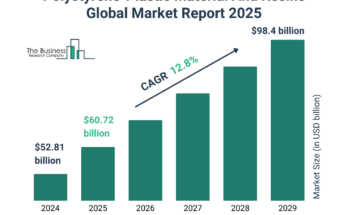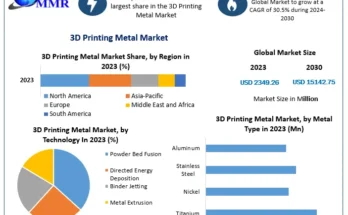According to TechSci Research report, “Pigment Dispersion Market – Global Industry Size, Share, Trends, Competition Forecast & Opportunities, 2028”, the Global Pigment Dispersion Market stood at USD 38.26 billion in 2022 and is anticipated to grow with a CAGR of 3.91% in the forecast period, 2024-2028. The pigment dispersion market, a crucial component of the global colorants industry, is characterized by its dynamic nature and integral role in various sectors such as paints and coatings, inks, plastics, textiles, and cosmetics.
Pigment dispersions are specialized formulations that facilitate the incorporation of pigments into different mediums, ensuring uniform color distribution and stability. These dispersions play a pivotal role in imparting color, vibrancy, and functionality to a wide range of products across industries.
The pigment dispersion market continues to evolve, driven by technological advancements, sustainability initiatives, and the expanding scope of end-user industries. While challenges such as regulatory compliance and economic uncertainties persist, strategic adaptation and innovation position companies to capitalize on emerging opportunities. As the market embraces sustainable practices and navigates technological frontiers, the pigment dispersion industry remains a key player in shaping the visual landscape of diverse products across the globe.
Browse over XX market data Figures spread through XX Pages and an in-depth TOC on “Global Pigment Dispersion Market” @ https://www.techsciresearch.com/report/pigment-dispersion-market/19436.html
The Global Pigment Dispersion Market is segmented into type, application, formulation, regional distribution, and company. Inorganic pigments, derived from mineral sources, are renowned for their stability and durability. Titanium dioxide, iron oxide, and chromium oxide are notable examples within this category. These pigments exhibit excellent resistance to light, heat, and chemicals, making them essential in applications where longevity and colorfastness are paramount. Inorganic pigment dispersions find extensive use in paints, coatings, plastics, and construction materials, where their robust properties contribute to the longevity and vibrancy of the final product.
On the other side of the spectrum, organic pigments are derived from carbon-based compounds, offering a diverse and vivid color range. This category includes azo pigments, phthalocyanine pigments, and quinacridone pigments. Organic pigment dispersions are prized for their brilliance and versatility, making them a preferred choice in industries such as textiles, printing inks, and plastics. Their molecular structure allows for intricate color variations, enabling manufacturers to achieve a broad spectrum of hues to meet diverse aesthetic demands
In the realm of coatings, pigment dispersions play a pivotal role in transforming surfaces into vibrant canvases. Architectural coatings, automotive paints, and industrial coatings benefit from the vivid color options provided by pigment dispersions. Beyond aesthetics, these dispersions contribute to the protective qualities of coatings, enhancing resistance to weathering, UV radiation, and corrosion.
Adhesives serve as invisible heroes in various industries, and pigment dispersions elevate them from functional to visually appealing. Whether in consumer packaging or industrial bonding applications, pigment dispersions enable adhesive products to seamlessly integrate into their surroundings. The color precision afforded by these dispersions enhances product presentation and aligns with brand aesthetics.
Sealants, tasked with providing a barrier against environmental elements, benefit from pigment dispersions in multiple ways. While ensuring effective sealing and bonding, these dispersions contribute to the visual coherence of structures. Colored sealants find applications in construction, automotive, and general manufacturing, where both functionality and aesthetics are paramount.
In elastomers, where flexibility meets durability, pigment dispersions add a touch of color to a wide range of applications. From vibrant rubber compounds in automotive tires to colorful medical devices, elastomers benefit from the visual versatility offered by pigment dispersions. The customization options provided by these dispersions align with the diverse applications of elastomeric materials.
Water-based formulations in pigment dispersions have emerged as champions of sustainability. Water, being the primary solvent, replaces traditional volatile organic compounds (VOCs), resulting in formulations that are environmentally friendly and comply with stringent regulatory standards. Industries such as coatings, textiles, and printing inks increasingly favor water-based formulations due to their low toxicity, reduced emissions, and ease of cleanup.
The versatility of water-based formulations extends beyond environmental benefits. Pigment dispersions in water-based systems offer excellent color development, stability, and compatibility with a wide range of substrates. This formulation is particularly favored in applications where quick drying times and minimal odor are essential, making it a go-to choice for various consumer products and industrial applications.
Europe, with its rich history in art and industry, plays a pivotal role in shaping the pigment dispersion market. The region is characterized by a commitment to precision and innovation, reflected in its high-performance coatings, automotive finishes, and avant-garde applications in art and design. European manufacturers emphasize sustainability, driving the demand for eco-friendly pigment dispersions and formulations. The stringent environmental regulations in the region also stimulate research and development, leading to the creation of dispersion technologies that align with both performance and sustainability objectives.
North America, a technological leader, contributes significantly to the pigment dispersion market’s innovation and market dynamics. The region’s emphasis on research and development results in the continuous evolution of dispersion technologies. The automotive industry, architectural coatings, and the burgeoning demand for 3D printing applications underscore North America’s influence. Additionally, the region’s commitment to regulatory compliance ensures that pigment dispersions meet the highest standards of safety and environmental responsibility.
Major companies operating in the Global Pigment Dispersion Market are:
- DIC Corporation
- AArbor International Corporation
- Clariant Corporation
- American Elements
- DECORATIVE COLOR & CHEMICAL, INC.
- Ferro Corporation
- Flint Group
- Heubach GmbH
- Organic Dyes and Pigments
- Reitech Corporation
To Download FREE Sample Pages of this Report
@ https://www.techsciresearch.com/sample-report.aspx?cid=19436
Customers can also request for 10% free customization on this report
“The digitalization of supply chain management is impacting the pigment dispersion market. From raw material sourcing to production planning and distribution, digital technologies are optimizing processes, improving efficiency, and providing real-time insights. This digital transformation enhances the industry’s ability to respond swiftly to market demands and changes in consumer preferences.,” said Mr. Karan Chechi, Research Director with TechSci Research, a research-based management consulting firm.
“Pigment Dispersion Market – Global Industry Size, Share, Trends, Opportunity, & Forecast 2018-2028 Segmented By Type (Inorganic Pigment, Organic Pigment), By Application (Coatings, Adhesives, Sealants, Elastomers), By Formulation (Water-Based Formulation, Solvent-Based Formulation), By Region, Competition”, has evaluated the future growth potential of Global Pigment Dispersion Market and provides statistics & information on market size, structure and future market growth. The report intends to provide cutting-edge market intelligence and help decision-makers take sound investment decisions. Besides, the report also identifies and analyzes the emerging trends along with essential drivers, challenges, and opportunities in the Global Pigment Dispersion Market.
You may also read:
Tetraacetylethylenediamine Market Advancements and Business Opportunities [2028]
Eco-Friendly (Green) Polyols Market – Size, Share, Trends, In-Depth Insights 2028
High Performance Polypropylene Compounds Market Analysis, Development [2028], Key Terms
Table of Content-Pigment Dispersion Market
- Product Overview
1.1. Market Definition
1.2. Scope of the Market
1.2.1. Markets Covered
1.2.2. Years Considered for Study
1.2.3. Key Market Segmentations
- Research Methodology
2.1. Objective of the Study
2.2. Baseline Methodology
2.3. Key Industry Partners
2.4. Major Association and Secondary Applications
2.5. Forecasting Methodology
2.6. Data Triangulation & Validation
2.7. Assumptions and Limitations
- Executive Summary
3.1. Overview of the Market
3.2. Overview of Key Market Segmentations
3.3. Overview of Key Market Players
3.4. Overview of Key Regions/Countries
3.5. Overview of Market Drivers, Challenges, Trends
- Impact of COVID-19 on Global Pigment Dispersion Market
- Global Pigment Dispersion Market Outlook
5.1. Market Size & Forecast
5.1.1. By Value & Volume
5.2. Market Share & Forecast
5.2.1. By Type (Inorganic Pigment, Organic Pigment)
5.2.2. By Application (Coatings, Adhesives, Sealants, Elastomers)
5.2.3. By Formulation (Water-Based Formulation, Solvent-Based Formulation)
5.2.4. By Region
5.2.5. By Company (2022)
5.3. Market Map
- Asia Pacific Pigment Dispersion Market Outlook
6.1. Market Size & Forecast
6.1.1. By Value & Volume
6.2. Market Share & Forecast
6.2.1. By Type
6.2.2. By Application
6.2.3. By Formulation
6.2.4. By Country
6.3. Asia Pacific: Country Analysis
6.3.1. China Pigment Dispersion Market Outlook
6.3.1.1. Market Size & Forecast
6.3.1.1.1. By Value & Volume
6.3.1.2. Market Share & Forecast
6.3.1.2.1. By Type
6.3.1.2.2. By Application
6.3.1.2.3. By Formulation
6.3.2. India Pigment Dispersion Market Outlook
6.3.2.1. Market Size & Forecast
6.3.2.1.1. By Value & Volume
6.3.2.2. Market Share & Forecast
6.3.2.2.1. By Type
6.3.2.2.2. By Application
6.3.2.2.3. By Formulation
6.3.3. Australia Pigment Dispersion Market Outlook
6.3.3.1. Market Size & Forecast
6.3.3.1.1. By Value & Volume
6.3.3.2. Market Share & Forecast
6.3.3.2.1. By Type
6.3.3.2.2. By Application
6.3.3.2.3. By Formulation
6.3.4. Japan Pigment Dispersion Market Outlook
6.3.4.1. Market Size & Forecast
6.3.4.1.1. By Value & Volume
6.3.4.2. Market Share & Forecast
6.3.4.2.1. By Type
6.3.4.2.2. By Application
6.3.4.2.3. By Formulation
6.3.5. South Korea Pigment Dispersion Market Outlook
6.3.5.1. Market Size & Forecast
6.3.5.1.1. By Value & Volume
6.3.5.2. Market Share & Forecast
6.3.5.2.1. By Type
6.3.5.2.2. By Application
6.3.5.2.3. By Formulation



